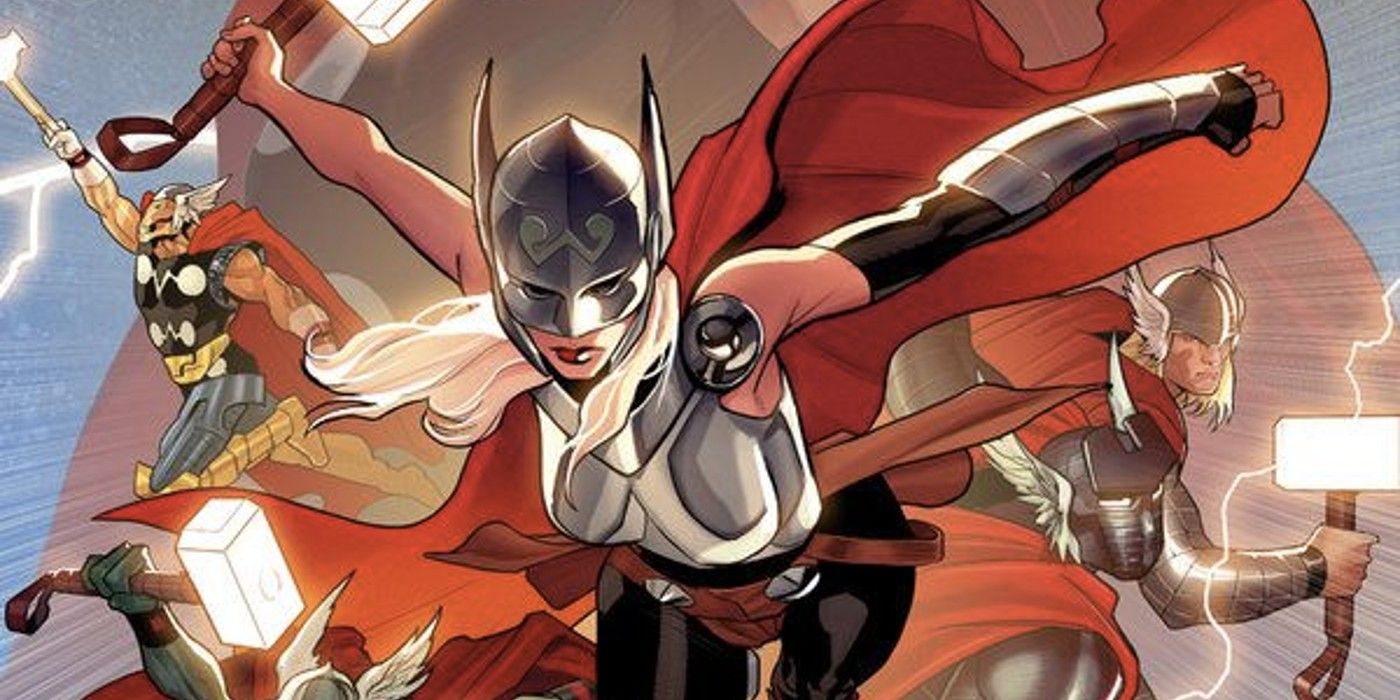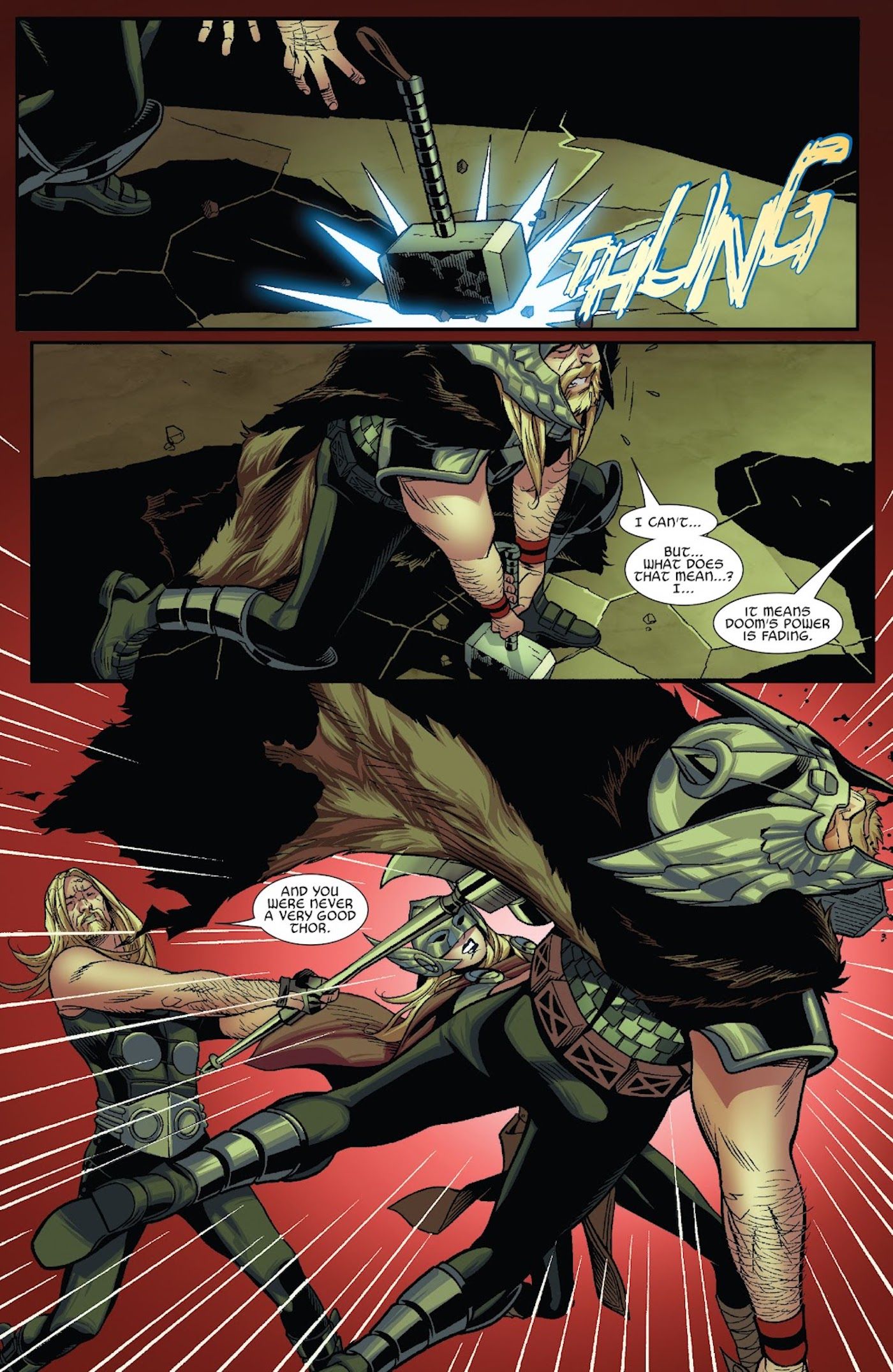In a universe where each hero adheres to their own code, Thor is unique because his sense of duty belongs to a higher source. But that sense becomes muddled when universes collide, which Jason Aaron and Chris Sprouse explore in Thors, a brief miniseries that redefined the very ideal of worthiness.
When Doctor Doom becomes God Emperor in the Secret Wars event, he assembles a kingsguard of the multiverse's most powerful beings. And to maintain his iron interplanetary grip, he brainwashes a fleet of Thors from every corner of the cosmos, enlisting them as his personal police force. He remaps their image of the Allfather to himself rather than Odin, and in so doing affects the famous enchantment over Mjolnir that states its wielder must be worthy. What Aaron's story suggests is that worthiness as determined by a corrupt idol isn't worthy at all.
The plot of Thors centers around the Thunder God of Earth-1610—a.k.a Thorlief Golmen, "the Ultimate Thor." He pursues an investigation into multiple homicides all related to Thor's personal life, slowly uncovering the truth of their collective brainwashing. When Jane Foster arrives on Battleworld with the revelation of Doom's deception, the Rune King Thor almost immediately loses control of his Mjolnir, which Foster explains is the result of his Emperor's influence fading. The remaining Thors who are pure of heart and intent decide to storm Doom's castle, presumably all being wiped out in a blaze of Asgardian glory.
The split between factions of Thors indicates a difference of interpretation as to what worthiness is. One kind is defined by a Thor's fealty to their Allfather, while the other is defined by their willingness to seek a higher, perhaps unattainable standard of heroism. The Earth-616 Thor represents a bit of both, but he has openly defied Odin a number of times and still been able to wield his weapon. Of course, neither interpretation accounts for the idea that Mjolnir has been sentient all this time, which throws a third will into the equation. It's worth noting that "Runey" vocally decries Doom, saying that he simply wanted the power of Thor for himself and it was never about serving anyone. It is immediately after this comment that his hammer plummets to the ground, immovable, which suggests that simply by disavowing loyalty to his God, this Thor forfeits his right to bear Mjolnir.
While the Thors miniseries isn't essential reading to enjoy the entirety of Secret Wars, it adds some more depth to a tentpole figure in the Marvel Universe. And though its climax is vague in some ways, it does rather definitively suggest that the warrior who pursues justice and truth even against insurmountable odds will always be worthy to bear the name, power, and arms of Thor.


